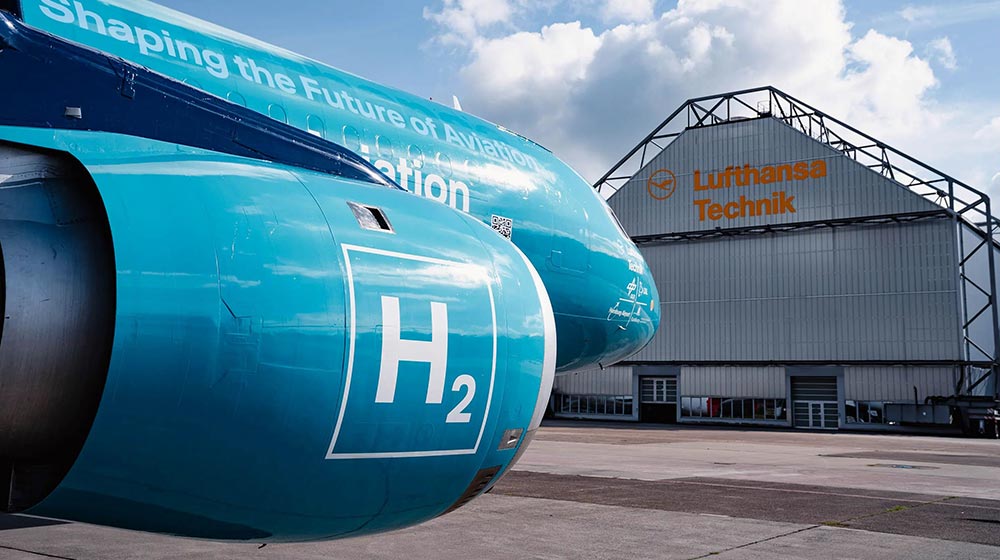
Sven Bennühr
In the next twelve months, players such as Aliscargo from Italy or ZFG Air from the UK, which have newly entered the market, will leave again.
Wrong. For a long time, the air freight market was hardly accessible to newcomers, as the market was predominantly characterized by rather low margins. When the pandemic drove up air freight prices, existing providers expanded their capacity and new ones entered the market. Aliscargo and ZFG Air are therefore just two examples in a series of new airfreight companies established in recent years in the wake of high rates, tight capacity and the e-commerce boom. But the airfreight market remains highly competitive, and recently demand has tended to decline again. In this market, it is difficult for newcomers to compete against the large and established carriers. So it seems perhaps unsurprising that Alis Cargo has now lost its operating license. But with a good concept, even new players can survive in the market.
Cargo aircraft are always needed.
Right. The instability of supply chains has become painfully apparent during the pandemic. To reduce the risks, diversification of transport means and routes played an important role in enabling largely undisturbed goods circulation beyond the heavily congested international container traffic. In this context, air freight played an even more important role in supplying society and the economy. Despite the more difficult conditions, it helped to maintain global supply chains and ensure the worldwide transport of important pharmaceutical and medical goods. The future will not be without air freight. The industry ensures that goods are transported reliably, safely and quickly from A to B, making a vital contribution to social and economic life.
The decarbonization of the air freight sector can only succeed through a complete switch to SAF.
Partially true. Sustainable Aviation Fuels (SAF) are an important lever for sustainable air freight transport and a feasible short-term solution to reduce CO2 emissions. However, the availability of biokerosene is still severely limited, and the cost is two to three times that of fossil kerosene. Power-to-liquid, or the conversion of electricity into renewable fuels, for example, could be a long-term solution for greener fuel in air cargo. But decarbonization in air freight will not only be about fuel, but also about digitalization and more efficient engines and motors. For example, digitization can help optimize routes and utilize capacity more efficiently. Other propulsion systems will also play a greater role in the future. Electric flying will probably be used on short-haul routes. And we will very definitely also fly with hydrogen in the future. For decarbonization to succeed, however, the decisive steps must be taken in industry and politics.
Hydrogen-powered cargo aircraft will not be a viable option even in the medium term.
Partially correct. Green hydrogen is considered a key element for the energy transition in various modes of transport. Hydrogen will also play a decisive role in the field of air freight with a view to the aircraft of the future. Manufacturers such as Airbus are already working on aircraft models that rely on hydrogen technology. The big difference between hydrogen and SAF, however, is that hydrogen requires a completely different infrastructure – not only for the aircraft themselves, but also on the ground at airports. It will therefore take some time before hydrogen is in widespread use, so the industry will continue to rely on SAF in the short to medium term.
The increasing shortage of skilled workers could only be remedied by consistent insourcing.
Right. The shortage of skilled workers is one of the greatest business risks for companies and, at the same time, one of the greatest challenges of our time across all industries. This also affects the logistics and aviation industry, and thus the air freight sector in particular.Many workers changed careers during the pandemic, retired or were laid off. At the same time, jobs could not be filled, as there are currently no reserves on the labor market to fill the gaps. This bottleneck will increasingly become a problem in the coming years, because demand for air freight is unabated, for example, due to growing e-commerce. To counter the shortage of skilled workers, companies in the air freight industry must develop innovative solutions. These include measures such as promoting junior staff and creating attractive working conditions, as well as increasing appreciation in order to keep employees in the company. Closer cooperation between companies and educational institutions and an even stronger overall focus on training and continuing education can also help to activate the unemployed and attract new skilled workers.
German air freight must abandon the very strict security rules.
Correct. Safety plays an enormously important role in air transport, and this will remain so in the future. However, with bureaucratic hurdles, the Federal Aviation Authority is risking the migration of cargo abroad as well as further staff shortages in air cargo handling. The security check for new employees alone takes four to six weeks in Germany, while checks outside Germany take only a few days. The so-called special screening procedure for goods in sealed containers, such as adhesives, which Germany’s airports practiced for decades without any incident, was also eliminated without replacement by the authority of the Federal Ministry of Transport. As a result, cargo is transported by truck to airports in other EU countries, where such special screening procedures continue to exist. Once the security certificate has been issued, the goods are transported back again, because the certificates are valid throughout the EU and therefore also in Germany. These are just two examples that show that the German security regulations are too bureaucratic and that it makes sense to standardize them, at least within the EU. Otherwise, Germany is threatened with an additional aggravation of the ongoing personnel bottlenecks and, in the medium term, with the migration of air freight traffic to other countries.
In the wake of the climate crisis, there will be a debate about abandonment in air freight.
Right. Perishable foodstuffs in particular are transported by air freight. Ultimately, however, it is the consumers who decide what food ends up on the supermarket shelves. In the wake of the climate crisis, I consider a debate about whether strawberries are needed at Christmas, for example, to be entirely sensible. Discounters and supermarkets are already foregoing the import of fruit and vegetables via air freight and instead are increasingly relying on regional and seasonal products. Sooner or later, this will also change purchasing behavior and ultimately the goods transported by air freight. (ben)

About the person Prof. Christopher W. Stoller
The internationally experienced logistics expert is head of the business administration program with a focus on freight forwarding, transport and logistics at the Baden-Württemberg Cooperative State University. He is also President of the Aircargo Club Germany.
Do you have a special request?
Contact us if you would like to learn more about the efficiency of German logistics!